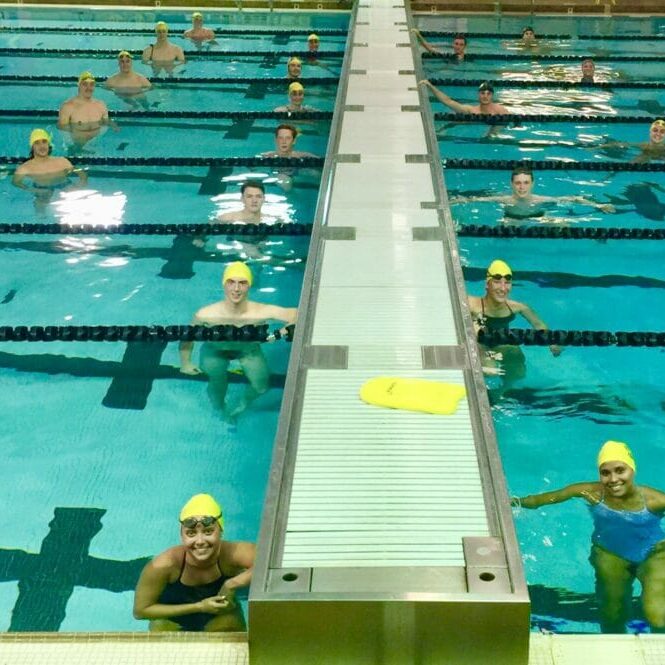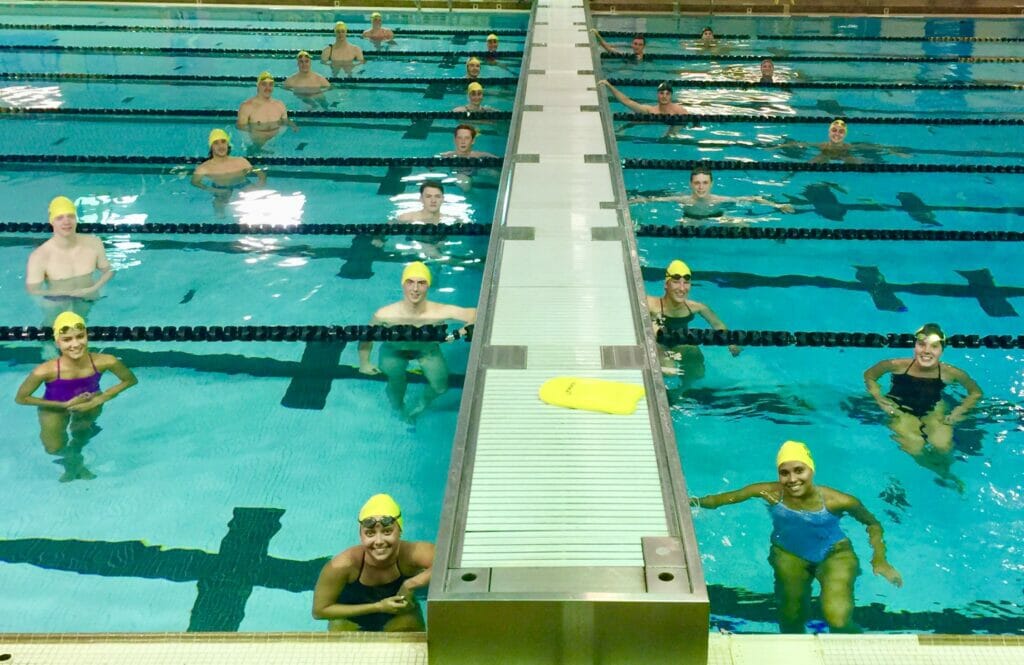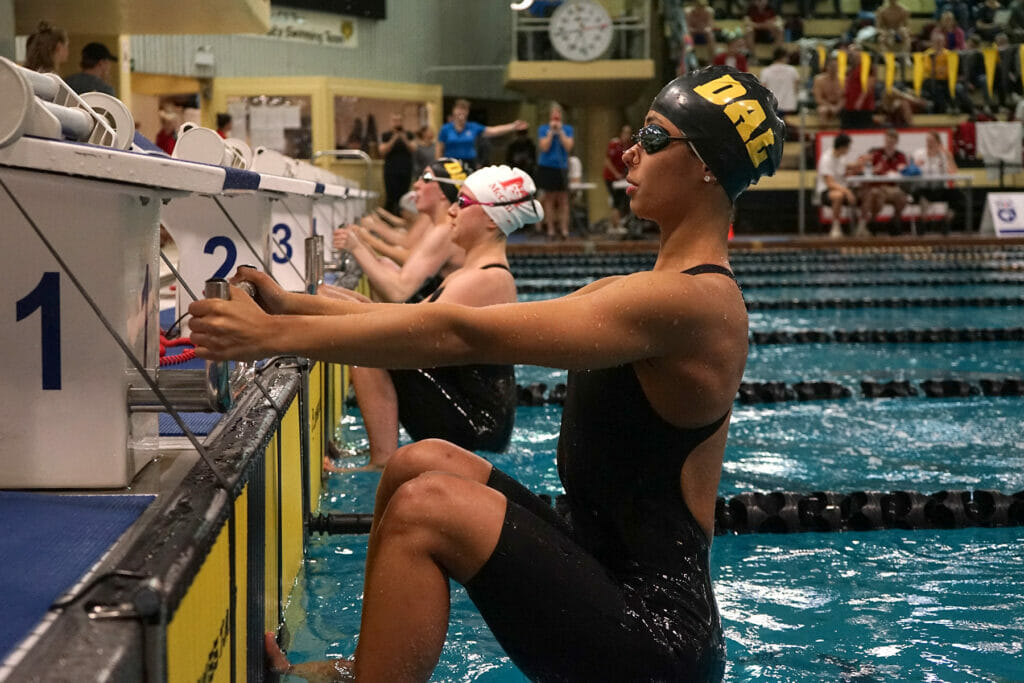
It’s been nearly nine months since the Dalhousie University Tigers swimming team wrapped up their 2019-2020 season at the U Sports Championships. They finished just before the COVID-19 pandemic hit.

Swimmers felt the pandemic’s effects in the off-season though as pools nationwide closed.
Many Dal swimmers hadn’t even seen a pool for six months, from March until late summer, when Dalplex reopened. Tigers swimmer Imani Theodore said it’s challenging to feel comfortable swimming after just one day off, let alone half a year.
“It was hard getting readjusted,” Theodore said. “[Swimming] has been good after being back for a while, but it was a really hard adjustment period our first month back.”
Dal’s swimmers are coming off a successful season where they placed first and second in the women’s and men’s divisions, respectively, in the Atlantic University Sport (AUS) Championships. The women’s Tigers would go on to place 11th in nationals while the men snagged 16th place.
Coping with no competition
With the AUS’s cancellation of fall semester sports, swimmer Mady Shivgulam said there has been a bright side.
“Usually, the goal in mind is to practice in order to improve for the next swim meet. [The suspension of fall sports] has been nice in one sense. It’s been good to focus on training. Plus, I enjoy being with the team and enjoying swimming for what the sport is,” Shivgulam said.
Even without official competition, the team makes up for it by designating their Friday nights as “race nights.” Swimmers race each other in different ways each week, whether through a different number of laps or swim styles.

Swimming coach Lance Cansdale said the in-house events have been successful in keeping a sense of competitiveness.
“Athletes can apply results from these races to where their performance level might be through the year, making it a great chance for them,” he said.
Cansdale said his team, featuring 14 rookies, is moving in the right direction and training hard despite the uncertainty of what the season will bring. A motto he’s preached is “anywhere, anytime, any condition.”
“You’ve got to be ready to go regardless. The athletes who can adapt to changing variables are the ones that will be consistent and successful,” Cansdale said about the slogan. “This is true for [swimmers’] academic lives too. With online classes, students are learning not only their courses but a new way of learning since class delivery is different. They have to be slowly loaded and given time to adapt because for six months, they had nothing.”
Status of virtual competitions
Regular competition against other schools won’t be back until at least January 2021. Cansdale said he and other AUS coaches have considered the idea of distanced (or virtual) competitions too. The AUS hasn’t commented on this possibility, but in such a case, schools would race at each of their own pools and have times recorded. Times would then be compared to those of their opponents.
Cansdale, Shivgulam and Theodore said no plans to compete in this fashion have been set. But having at least one virtual competition against other teams before Christmas isn’t off the table.
Cansdale added, as part of the process of returning to normal competition, remote competition could be one of a few steps to a return. That could mean distanced competition could happen in January, even if the AUS approves a return to play.
Any distance competitions would involve much different approaches to races, Theodore said.
“It’s one of those situations where you have to race the clock and not the other person,” she said. “Once you get a racing suit on, everything can change. The headspace feels different, it’s like switching into competition mode.”
“When you walk into the AUS Championships in February, you can feel the atmosphere is different than meets earlier in the season. Some swimmers really strive in that environment,” Shivgulam said about the pressure-filled meets where many teams gather to chase a championship. “Our team is really supportive though. If we’re only given [distanced competition]parameters, we can get behind that and motivate each other to make the best of that situation.”
It hasn’t been an easy recovery for swimming programs in the AUS. The pandemic’s financial burden and health concerns forced Acadia University to close its pool. They form one example of how a return to swimming is difficult in its own respect from other sports.
“We’re trying to be as optimistic as we can for the new year. But things look somewhat promising since we are in the Atlantic bubble,” Cansdale said. “Fingers are crossed.”






